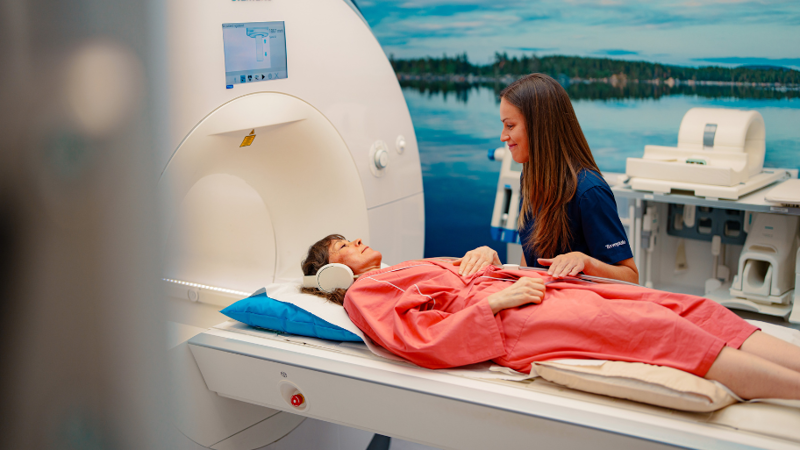Work ability follows from good management – Correct information is needed for everyday management
Work and workplaces are undergoing major changes that challenge every organization. Exhaustion and anxiety are becoming more common, with changes caused by digitalization, labor shortage, an aging population, and the demands for continuous learning weighing on employees. These megatrends can be managed, but we need a systematic approach and business intelligence tools to do so.

The management of work ability plays a key role in every modern organization – it is central to constructing and maintaining a thriving work community. According to Tiina Loikkanen and Johanna Kivimäki, senior consultants at Terveystalo, we cannot expect people alone to change during major transitions.
“It is increasingly important for managers and leaders to understand that we must fix organizations and develop work itself to meet the needs of future workplaces,” says Loikkanen.
To achieve proactive development of work, the management of work ability should be made an inherent part of companies’ strategic and daily management. In this way, it would no longer be the responsibility of individual employees, as is often the case at present. However, the good will of responsible companies often does not turn into appropriate action until management has access to enough information about the real state of well-being at work.
“To date, we have not had enough tools or versatile indicators to support comprehensive management. Even if supervisors manage work ability perfectly, the impact of their good work is not visible to management,” Kivimäki points out.
Work ability management is present in daily work
Kivimäki emphasizes the significance of a systematic and transparent process to effective work ability management. Work ability management is part of day-to-day management and leadership, and its impact can be seen in the improved well-being of employees at work.
“Work ability management is, essentially, part of project management. For it to be successful, it must be planned carefully and carried out determinedly. It is also important to assess the impact of the actions taken and to engage in continuous improvement,” says Kivimäki.
“Work ability management should be made transparent. Data are refined into forecasts, and Terveystalo’s tool makes the impact of activities visible to supervisors, HR, and management,” Loikkanen adds.
Are the indicators adequate?
Companies and organizations now have better insight into the importance of work ability management and monitor a wide range of related indicators. However, indicators such as sickness absence rates reflect past actions. It would be important to consider whether data are collected solely on past phenomena or whether management is truly proactive. In addition to conducting risk assessment, it would be useful to monitor factors that maintain the ability to work. Such data are obtained from personnel surveys, for instance.
According to Loikkanen and Kivimäki, setting requirements is also a form of caring. By encouraging employees to actively talk about their work, we can promote small actions that, in the big picture, influence the company’s eNPS, employee engagement, and even sickness absences.
Latest articles

How technology helps relieve mental stress: "When the load is high, the threshold must be low."
Mental health disorders have overtaken musculoskeletal disorders, which had long been the leading cause of sick leave. Work is changing, and the range of sick leave caused by mental health issues has also changed. We must be able to offer new solutions to this challenge.

Extensive data set of 200,000 samples: Nightingale study reveals link between illness risks and sick leave
Data from the Finnish Nightingale study, which is used in Terveystalo's occupational health services, reveals a clear link between lifestyle-related health risks and sick leave. The exceptionally extensive data set of over 200,000 customers shows that people with a low risk of illness had significantly fewer absences, while those in high-risk groups had more absences. The results highlight the importance of preventive healthcare in ensuring work ability and the competitiveness of companies.

Strong identification speeds up your service experience when calling us
Soon you can identify yourself easily and securely before your call is answered. Read below to see how the identification process works.

Terveystalo's digital services have been awarded the internationally recognized ISO27001 information security certification.
Terveystalo's information security practices, processes, and risk management are in line with international best practices.

Does massage help relieve stress? – Touch restores and calms the body and mind
Stress is not always visible on the outside, but the body does show signs when the strain increases. According to Lassi Ylönen, a trained massage therapist at Terveystalo Rela, the body often communicates stress through subtle signs.

Circular economy and artificial intelligence boost performance and improve care
At the heart of sustainable healthcare, technology serves as a tool for improving both the quality of care and accountability. Terveystalo favors solutions that combine sustainability, cost-effectiveness, and medical expertise.